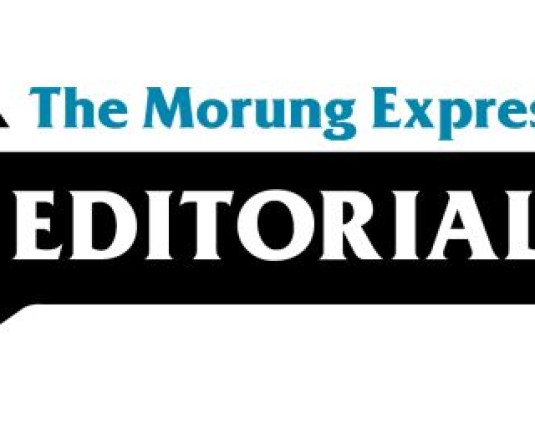
Moa Jamir
The Eastern Nagaland Peoples’ Organisation (ENPO) recently announced its decision to boycott the upcoming Hornbill Festival for the second consecutive year, exposing what appears to be a mishandling state of affairs by the State Government. The festival, often touted as the 'Festival of Festivals,' is a significant cultural event in Nagaland, drawing attention from across the state.
Reports indicate that the ENPO, representing seven tribes and six districts in Eastern Nagaland, made this decision during its executive meeting on November 3. The absence of even one community from this premier festival undermines the festival's aim of portraying an inclusive and cohesive cultural milieu.
Nagaland Chief Minister Neiphiu Rio, when questioned about the ENPO's resolution, responded on November 10 by saying, "We will discuss it," while Parliamentary Affairs & Power Minister, KG Kenye urged the ENPO to reconsider and participate in the festival. CM Rio also hinted at tripartite talks involving the Government of India, ENPO, and the State Government regarding a demand for separate statehood.
However, the crucial question is: what prompted the ENPO to boycott the festival for potentially two years? The State Government's response to the issue has been non-committal and cryptic, at best. Although Chief Minister Rio mentioned a 'good discussion' on November 6, the specific assurances given on five points remain unclear.
Notably, the ENPO boycotted the 2022 Hornbill Festival and withdrew its decision to abstain from the 14th Nagaland Legislative Assembly elections in February this year just days before the poll date, following an assurance from Union Home Minister Amit Shah on February 2 that a mutually agreed ‘solution would be reached and implemented, post-election.’
Thereafter, on June 27, the ENPO announced that it has accepted the proposal of the Government of India for the formation of a Frontier Naga Territory (FNT) with autonomy in legislative, executive, administration, and financial matters. However, the State Government's response to this proposal has been elusive. “Considering the sentiments of our Naga brothers and sisters towards unity and togetherness,” the ENPO then said, it accepted the proposal “without insisting on dividing the Nagaland State.” Towards this, the 7 tribes of Eastern Nagaland, namely Chang, Khiamniungan, Konyak, Phom, Sangtam, Tikhir, and Yimkhiung, the ENPO also made an appeal to the ‘State Government and Naga brothers and sisters’ seeking support towards fulfilling the demand of the people of Eastern Nagaland.
However, the ambiguity continued. For instance, even during his Independence Day address on August 15, CM Rio informed that the State Government was making every effort to reach out to every section and region to understand the people’s aspirations but refrained from dealing with the issue directly. Earlier in July, the eight apex tribal hohos of Nagaland have ‘strongly’ urged the Government of Nagaland to ensure their inclusion and consultation in the “decision-making process or agreement” to the demand of the entity by the ENPO.
Accordingly, despite the ENPO’s appeal, the official response has been limited to ambiguous statements, and the State Government's ambiguous stance on the issue may have led the ENPO to believe that it is not acting in their best interest, leading to the boycott.
This is extremely unfortunate. Hence, in addition to ensuring the Hornbill Festival's inclusivity, the State Government must clarify its position on what the ENPO termed the "people’s movement" for Frontier Nagaland State, dispelling doubts and paving the way for constructive dialogue.
For any comment, drop a line or two to jamir.moa@gmail.com






